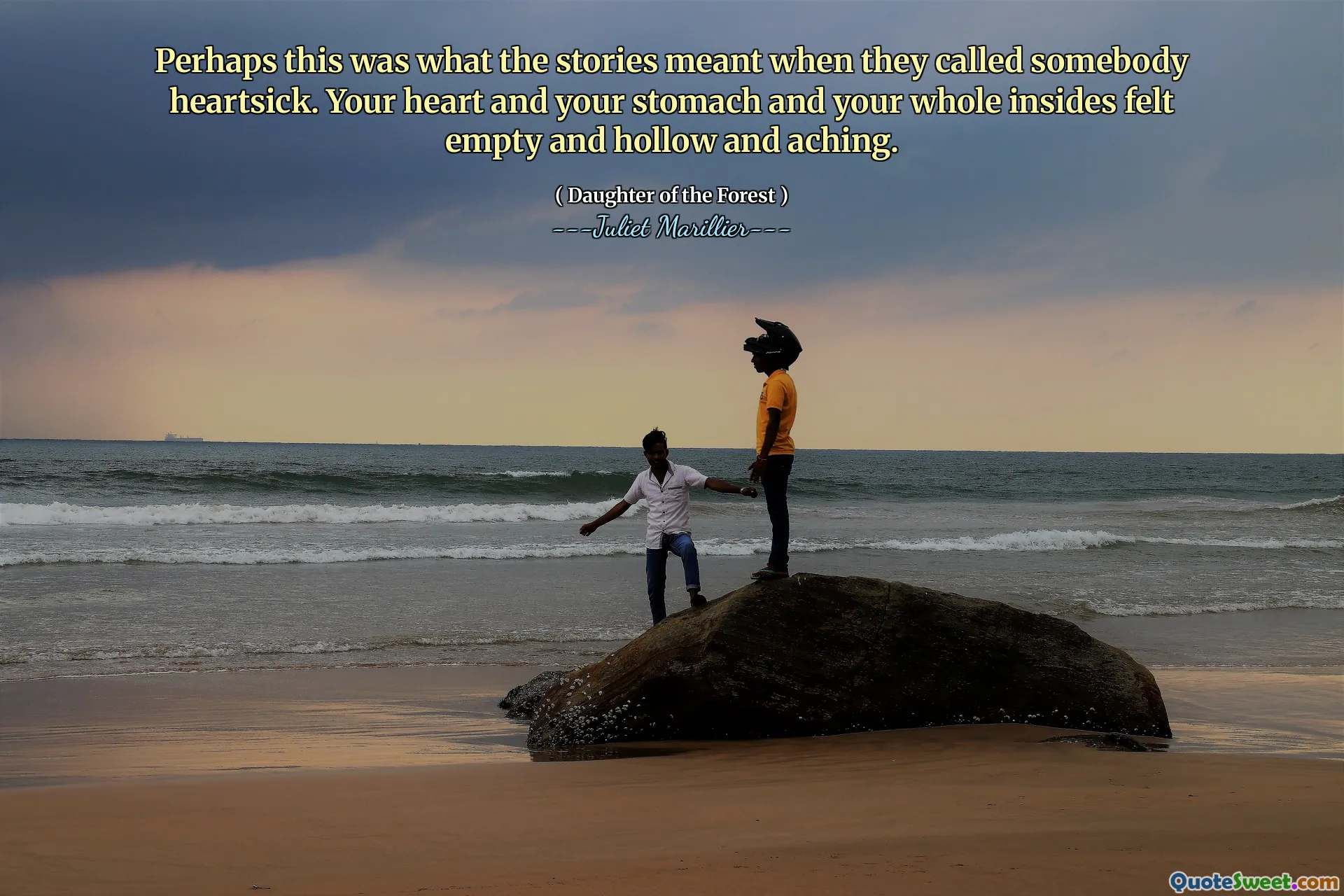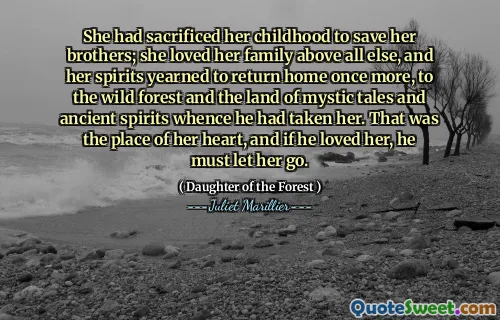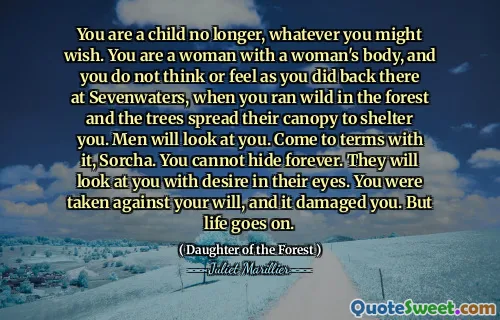
Perhaps this was what the stories meant when they called somebody heartsick. Your heart and your stomach and your whole insides felt empty and hollow and aching.
This quote beautifully captures the profound and multifaceted nature of emotional pain. The way it describes the sensation of being 'heartsick' extends beyond mere sadness. It conveys how deeply emotional suffering can manifest physically, affecting the heart, stomach, and the very core of one's being. This blend of emotional and physical emptiness illustrates how heartbreak or intense sorrow can hollow out a person internally, leaving them feeling fragile and vulnerable. The imagery evokes empathy, as many can relate to that gut-wrenching emptiness that resonates not only in the mind but in the body as well. By connecting this feeling to stories and folklore, the quote also hints at the timeless human experience of suffering and the shared language we have created to express such poignant emotions. It suggests that heartbreak is not merely a personal ordeal but a universal phenomenon, one that has been recognized and articulated through the ages across different cultures. The visceral depiction of ache and hollowness eloquently encapsulates the complex interplay of emotional and physical pain, reminding us of the deep interconnectedness of our internal experiences. This quote from "Daughter of the Forest" resonates with anyone who has endured sorrow, portraying it not simply as a mental state but as a somatic reality, emphasizing the comprehensive impact of emotional distress on the human condition.








